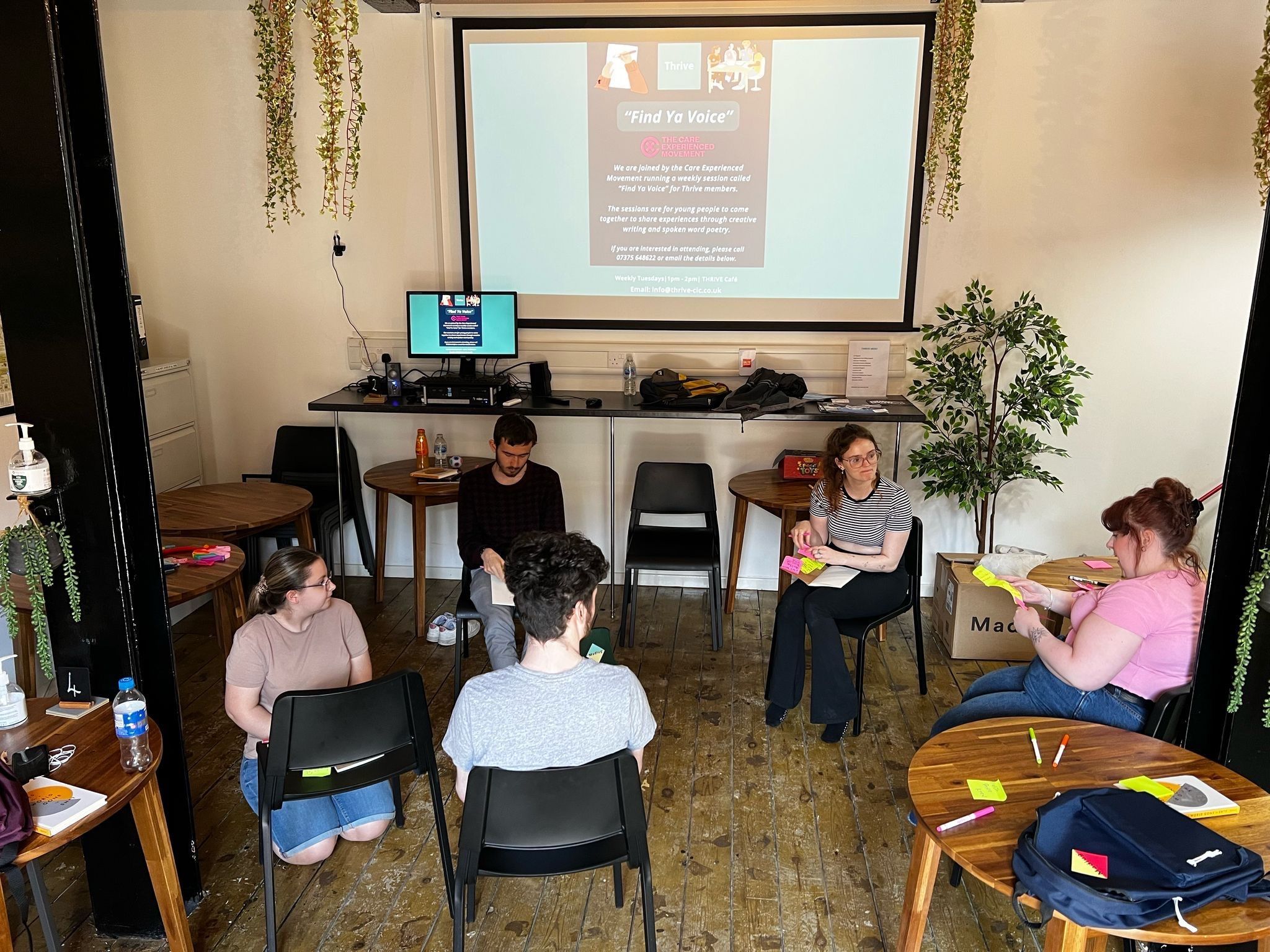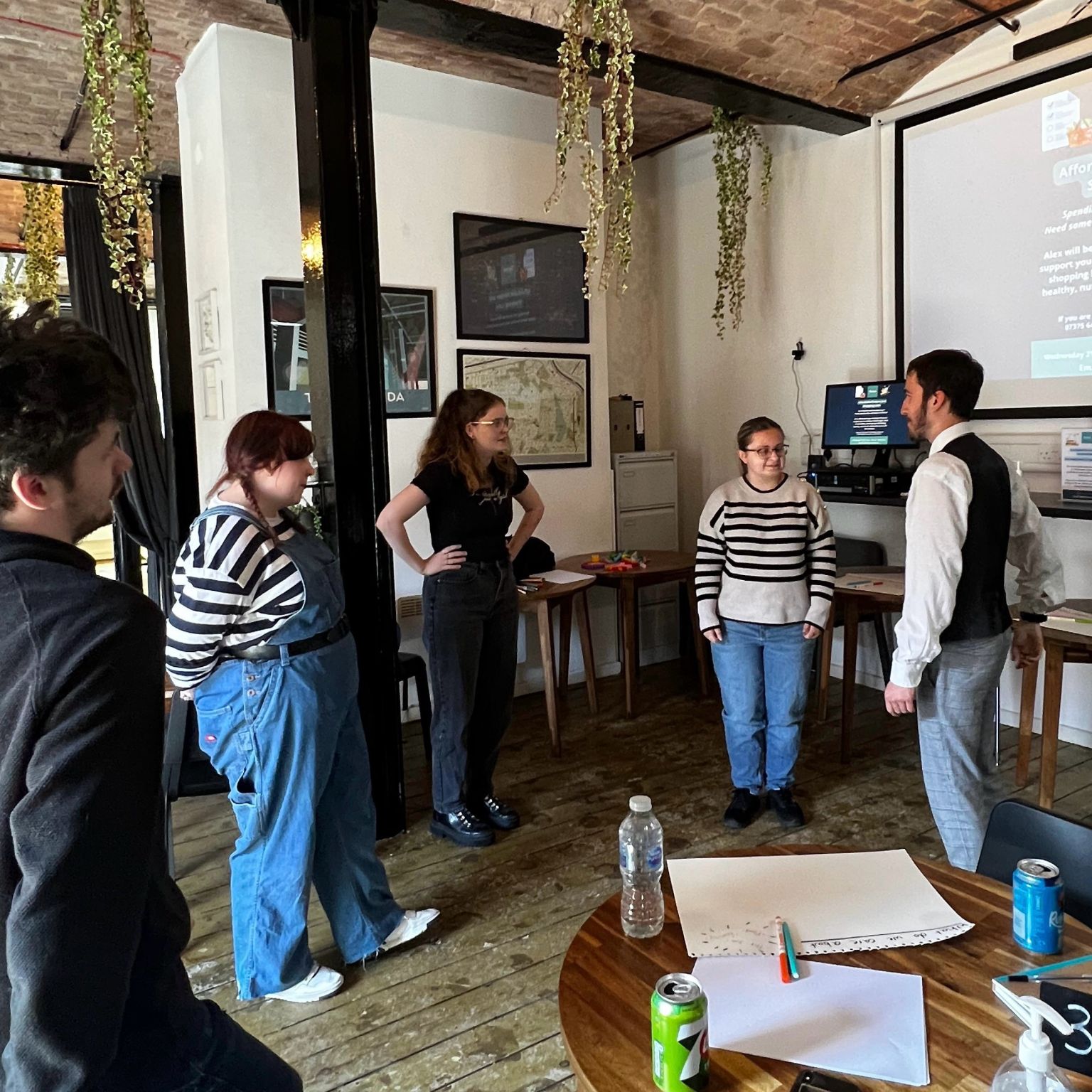
This statement gets to the heart of why Isabelle founded The Care Experienced Movement. Her goal with the organisation is to move care-experienced people from being spoken about to being the ones actually shaping the conversations, narratives and systems that have had, and continue to have a direct impact on their lives.
“We’re the only organisation I know of that’s fully care-experienced from the ground up,” she says. “Our board, our team — everyone has lived it. That does make us unique.”
As someone with her own experience with the care system, Isabelle understands how valuable it is for the community to have care-experienced people leading this work.
“I think this is important because there’s an inherent understanding we can have amongst each other that means the people we work with don’t have to constantly explain their experience. When someone says, ‘My PA is coming over so I can’t make the meeting,’ we don’t need an explanation. We just get it,” Isabelle explains. “There’s a shared language, a deeper understanding and an almost automatic trust there. It’s like we’re siblings in a way, because although we all had our individual upbringings, we grew up in the same system.”
At first, the team focused on working within government — pushing for policy change and legislative reform. But after taking a year out to have her first child, she came back with a fresh perspective on what impact could and should look like for the care-experienced community.
“We’re still going to work in the policy area, but actually working directly with a young person to enable them to have a friend who’s also shared the same experiences is the change that we’re working towards now. If we can have an impact directly with somebody, that’s more meaningful growth to me”

Isabelle has found that this approach means that conversations to do with policy or systems change work can actually flow more naturally too, helping her and the team to absorb that feedback and share it with others, and so the change in approach is a win-win. “People will come along and do some drama games or crochet blankets, and then those conversations about system change and policy change just naturally happen, and that makes it easier for our community to get involved in because there’s less pressure for them to share.” Isabelle explains.
Another strand of work they’re embarking on is around public education. “We’re about to run a social media campaign exploring how we can change the public narrative about what care experience actually is, beyond the headlines people see or the policy papers that get released.”
Isabelle says this shift wouldn’t have been possible without the Pathways Fund. “If we didn’t have that stable funding, we wouldn’t have been able to make that change and have that growth.”
And that’s not all that’s helped her to keep delivering the important work that Care Experience Movement does. The Wellbeing Grant has been “life-changing” for Isabelle. “No other funders recognise the impact of being in this sector, and that we need well-being support to do the job we want to do and to do it well. It’s helped me to realise “Oh actually, we can do the work and look after ourselves at the same time.”
Alongside that, at the start of the year, Isabelle didn’t think she was able to attend a partner event as she didn’t have childcare, and Blagrave offered to cover the costs for her partner to come down and do the childcare there. “ I was like, “What is that about?” I’ve never heard of any funder ever offering to pay for childcare costs, accommodation, travel. It meant I could engage.”

Despite all of their progress, barriers still remain. “Our lived experience is our strength, but it is a challenge,” Isabelle says. “This work is personal, which can be draining. Financial insecurity is constant. Local authorities often ignore our emails because they don’t want to be challenged. The system itself is a barrier.” Capacity is another struggle. “There’s so much that needs to be done, and we’re a small team. We can’t do it all.”
She’s also frustrated by how funding flows. “Care experience is a hot topic right now because of the government’s Care Review, but the money often goes to big, established organisations, which can feel performative.”
This funding approach also reinforces the exact issue that the Care Experience Movement was founded to dismantle. “It kind of goes back to that feeling when you’re care-experienced, that you’re listened to, but only in a certain way or a certain space.”
Her message to funders who want to support the care-experienced sector is this:
“Trust the people doing the work. They know what they’re doing. And if they don’t, they’ll ask for help. Funders need to be open and ready to support beyond just giving money too. That’s the big thing: don’t just throw funding at an organisation and hope for the best. From a care-experienced perspective, listen to the people living it. Pay attention to the work they’re drawn to, and the change they want to make. And finally, trust that care-experienced people come to this work for a reason.”